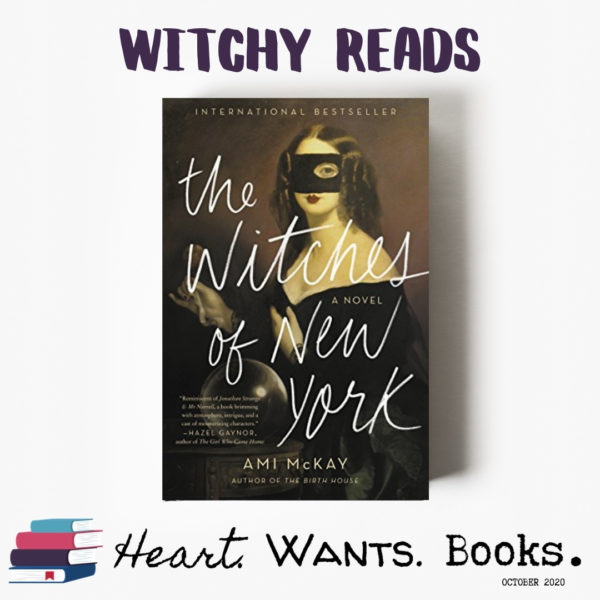Akata Witch & Akata Warrior by Nnedi Okorafor October 8, 2020
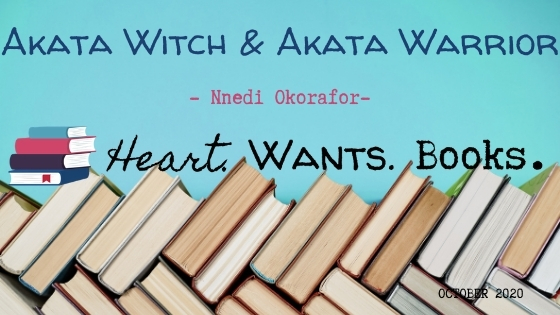
The following post includes affiliate links. More details here.
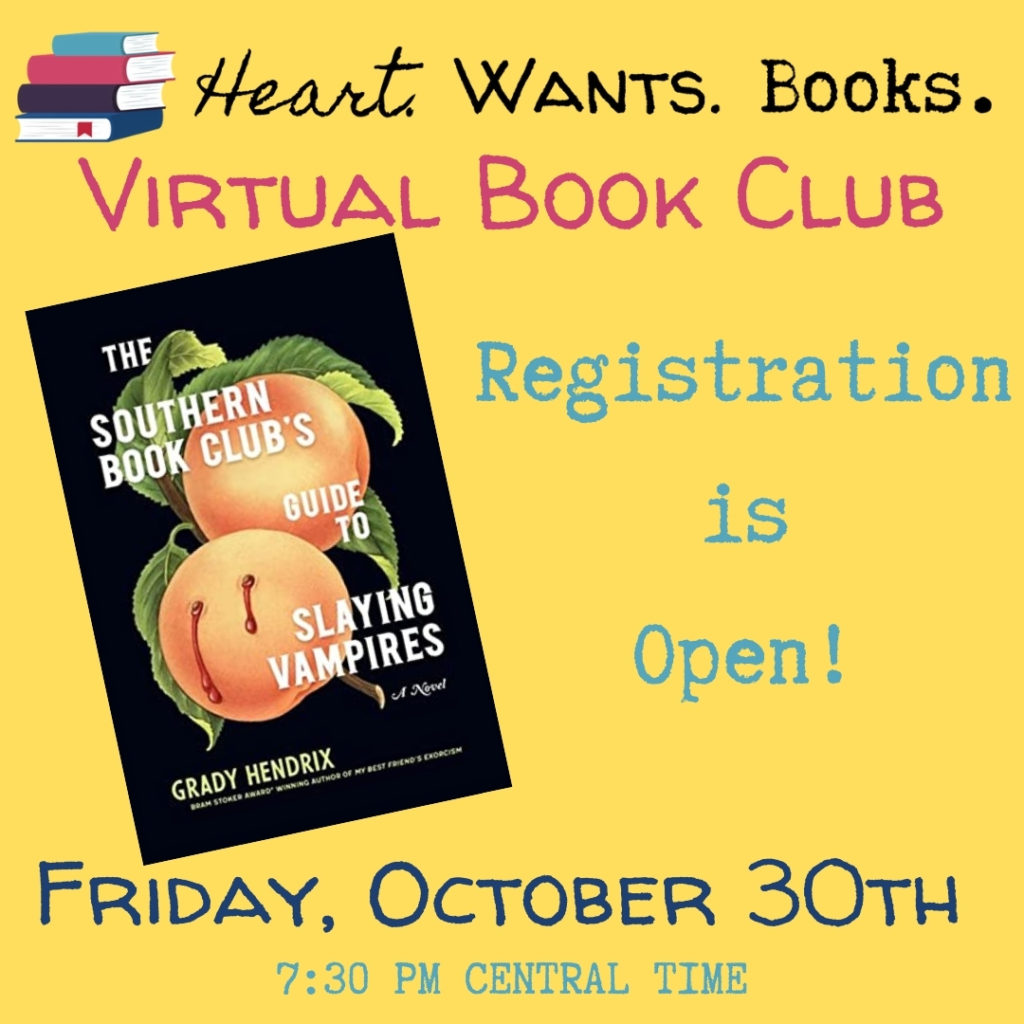
As we enter yet another round of doing hard things IRL, we’re doing hard readerly things for Virtual Book Club – reading a horror novel! If this is a hard thing for you, please consider joining us for a discussion of The Southern Book Club’s Guide to Slaying Vampires by Grady Hendrix on Friday, October 30 at 7:30 p.m. CST (and we won’t judge you for not finishing it!). If reading horror novels is a thing that you do, then PLEASE join us to help us learn more about how this one fits into the genre. Register here to let us know we get to chat books with you!
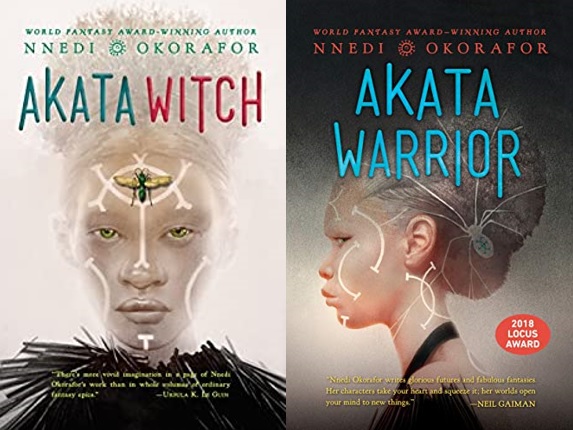
I’ve spoken before about my friend who suggests books that are out of my comfort zone, like thrillers. She also suggested Nnedi Okorafor as an author I should read maybe a year or so ago. We were having lunch (remember when we got to do that with friends?) and discussing books (shocker) we were reading and what our children were reading. One of her children was was reading Are you There God? It’s me, Margaret by Judy Blume (which I promptly consumed for the first time, then cursed all the readerly adults in my middle school life for not putting it in my hands), and one of mine was reading Harry Potter. That said, I understand why Akata Witch and Akata Warrior are compared to the series, but also, it’s SO much more than that.
Dear readers, if you, or your people, love a magical realism meets hero’s journey tale, please meet twelve-year-old Sunny as she learns about her powers, a world she never knew existed, and finds herself through the process in Akata Witch and Akata Warrior! One note for those with young readers at home, these titles are listed for age 12 and up, and grades 7-9. They are definitely for a more mature middle grade reader. There’s the saving the world I’ve come to expect in the hero’s journey tale, but there’s also a bit of romance among the young characters that some may not appreciate for their readers who need high level and low content. I’ve considered how my eight-year-old advanced reader would love this book. While I’m not going to hand it to him, I wouldn’t ask him not to read it if he picked it up and showed interest. That’s me though, you do you, and let us know if you have specific questions.
Let me count the ways I love Akata Witch: We have four children (Sunny at 12 is the youngest) who are learning to be responsible Leopard People. Sunny is an albino and an American born to Nigerian parents, now living in Nigeria, so there’s lots of “other” going on, and she’s a free agent, meaning her family of origin are not Leopard People (aka magical). Sunny is trying to be a normal kid, and learns early in the book that she’ll never be normal, and then finds out that’s okay as we proceed through these gorgeously written books. I love a tale of adversity and hope, and I thoroughly enjoyed getting transported to Nigeria as I read this story.

Part of our diversity goal is to read more diverse authors, and another part is to read about diverse topics through the books we chose. This fits both camps as Okorafor herself is Nigerian-American and these books take place entirely in Africa, mostly in Nigeria. I learned so much about Nigerian culture and the ways it’s similar and different from American culture from Sunny and Sasha in this four star series that definitely has re-read potential. The magical world building is beautiful and encompassing. Okorafor’s backlist is on my TBR now, and I may have already downloaded several Shuri graphic novels. I want to say so many things about this book, but here’s how I’ll end. I still hate the trope of spiders in fantasy novels. While it was fine to read about it on the page, I will 100% turn into Ron Weasley (or Zeus Berger, take your pick) if Akata Warrior comes to the screen.
~Nikki
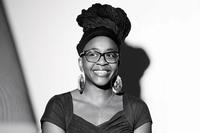
Dear Readers, when Nikki and I started bandying around witchy titles a couple of months ago for this month’s theme (remember how our library holds are full to bursting – I think Nikki was most recently at a high of 90…) she mentioned Nnedi Okorafor’s Akata Witch duology of books and not only was I here for the diversity but also because the plot seemed really super cool! I’ll get back to the plot, but let’s talk about the author. As Nikki mentioned above, Nnedi Okorafor is a Nigerian-American author who writes in the genres of Africanfuturism and Africanjujuism (African continent and peoples focused science fiction and fantasy). She has won a Hugo award, a Nebula award, a World Fantasy Award, and a Locus Award for her work. Okorafor holds a PhD and MA in literature and an MA in journalism and lives in Illinois with her daughter and family. You can find out more about her on her website www.nnedi.com.
I have loved getting to know Sunny, Chichi, Orlu, and Sasha, their juju teacher and mentors, and all the Leopard People and magical creatures of Leopard Knocks and other Leopard communities. The term ‘Leopard person’ is of West African coinage and comes from the Efik term ‘ekpe’ or ‘leopard.’ “All people of true mystical ability are Leopard people.” Important to note is that the term ‘akata’ is a very derogatory word meaning ‘bush animal’ and is used to refer to black Americans or foreign-born blacks. A school bully calls Sunny a “stupid pale-faced akata witch” in the very first chapter and she explains the term to us then. I think Okorafor uses the term in the title to reclaim the word and to have Sunny embrace all of the things that make her ‘other’ because those are the things that give her power and define her.
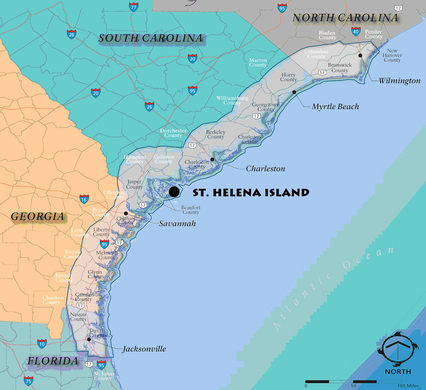
Learning about the differences of the global Leopard world was interesting and brought back some memories, let me explain, as I type this in New Orleans with Hurricane Delta on its merry way to the Gulf Coast by way of the Yucatan Peninsula… Sasha, the Chicagoan boy sent to live with Orlu’s family after he got himself in trouble, explains to Sunny, Chichi, and Orlu that the Leopard headquarters in the United States is in New York, but since they’re biased towards European juju, the African American headquarters is on the Gullah Islands in South Carolina. The Gullah sea islands and other low country areas of South Carolina, Georgia, and Florida are filled with the creole culture and language of formerly enslaved Africans, mostly of West African descent. I have fond memories of watching Gullah Gullah Island with my sister on Nick Jr. as a kid – it ran from 1994-1998. For those of us needing a more adult reminder of Gullah culture, there’s always Minerva from John Berendt’s Midnight in the Garden of Good and Evil working her voodoo in Savannah, GA, and Beaufort, SC. It does not come as a surprise to me that black Leopard people in America would have their headquarters there or that they would call it Tar Nation.
At the end of Akata Warrior, Sunny is anticipating her next adventure, and I am willing to re-read both books as a reminder of what happened once Okorafor has the next Akata book slated for release. I read Akata Witch with the intention of just posting about that book, but it was SO GOOD, I immediately informed Nikki this post was going to be a double header. What’s the last beginning book in a series that made you immediately jump into number two?
~Ashley
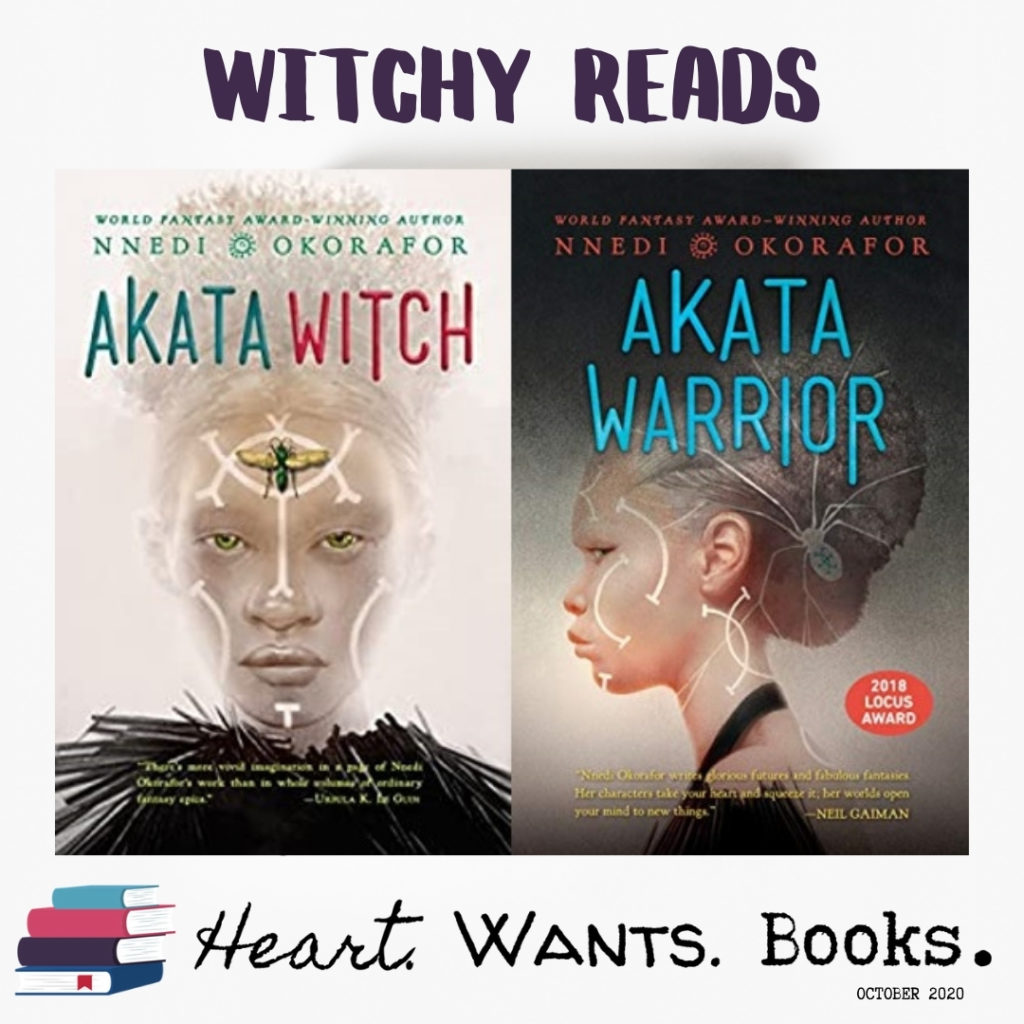
PLEASE SUPPORT US WHEN YOU SHOP BY FIRST CLICKING ON THE IMAGES BELOW:




